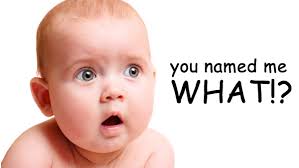
Think about it! There will be certain ones from movies, TV, books, video games and so on that always come to mind. Now, think about the names of these characters. Is the name part of the reason why you remember the character? Does the name fit the personality of the character? Would Scarlet O'Hara be as memorable if her name had been Judy Smith? [My apologies to all the Judy Smiths out there. It’s a perfectly fine name.]
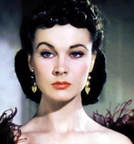
There is a plethora of advice available on naming fictional characters, and all agree that choosing names is an important part of structuring a novel. The name is an important part of the fictional person's personality just as your name is part of who you are.
Character names do matter, and bestowing them can be as stressful as naming your baby. In fact, in a way you are naming your baby. You are breathing life into your character and creating a new being.
Some perfectly good names can be poor choices for your novel, or they may be fine but not as fitting as they could be. The author really doesn't know all the ins- and-outs until the character starts to speak, take actions, and make decisions during the course of the first several chapters.

Be observant, listen, and write ideas down. Inspiration for names is all around us. I keep a list of interesting names I've run across. Eventually, a character and circumstance will show up that is appropriate for the name.
Author Dan Schmidt suggests starting with people you know either because of their interesting names and/or characteristics. Get a map and look at names of towns, cities, rivers, streets, and so on. I love the name of a town in Arkansas: Smackover.
He also suggests authors pay attention to movie credits and products. When he wrote "Playa Perdida" he named one of the characters Charlotte Pipe after a length of PVC tubing he saw in a lumberyard in North Carolina. His approach is to write first names and last names on separate index cards, so later you want match them up for a specific fictional character.

Most of the many articles and books I reviewed give "Rules of Thumb" for naming characters which are substantially the same. Do's and Don’ts are essentially two sides of the same coin; it all depends on how you word the sentence, and there are a lot of considerations. I've limited them to those I feel are most important.

● Keep names short and pronounceable, even in Science Fiction, Fantasy, and Historicals
Avoid character and place names that are awkward to read or pronounce. Even if readers don't say the names aloud, they still pronounce them in their heads. Some awkward names cannot be avoided because you're using them in historical context, and scenes set in one-of-a-kind locations that are vital to the story but happen to have clunky names. Give them nicknames or shortened versions.
● Think about your character's physical appearance, ethnicity, personality, profession, interests, social status, and backstory.
Names should suit the character. Unlike parents naming a new baby, authors have the advantage of making the character's features and personality whatever they want to fit the story.
● Make the name appropriate for the year and location when named.
Take into account the names used at the time in history this character was named by the parents in the context of the location and social station. Take into account the character's ethnicity and national origin.
● Speak the name aloud
● Give siblings the same style of names.
An example would be all biblical names. Another, all begin with the same letter.
● Names should suit the character
If the character is to be quite strong-willed and stubborn, strong sounds like "k" and "p" will pick up well here. On the other hand, if your character is pretty and a bit shy, soft sounds like "f" and "s" work much better.
● Determine if name is in the correct language
This is a pitfall if you have characters with foreign names. If your character is Chinese, be sure you're using a Chinese name, not Japanese. And be sure you spell it correctly.
Also, different languages put the given name (first name) and surname (last name) differently, and have different name parts. Russian names are complicated and express family relationships. Look it up if you don't know for sure.

In my opinion, there are no specific Don’ts. In fiction you will see everything in print and many of them would be characterized as "Don't" or "Never Use". Anything goes if it works. Therefore, I characterize these rules of thumb as "Watch-Out-Fors."
● Watch out for a character with many names.
Because the author knows the characters, he can read the manuscript many times without seeing any problem with multiple names. In reality, we often use different names under different circumstances, or different people refer to the same person by another name or nickname.
In real life, a person named Manfred Carlyle McDonald, who is a lieutenant in the military and is also a medical doctor, could be referred to as Mr. McDonald, Doctor MacDonald, Lieutenant McDonald, McDonald, Manny, Mac, Fred, or all of those.
In fiction, the reader tends to associate the character with the name first used to introduce him/her. When that same character shows up again, sometimes many pages later, and is referred to or addressed by another name, it can be very confusing.
● Watch out for many characters with similar names.
Authors are smart enough to figure out that two characters shouldn't have the same name. The only exception I can think of would be a child named after a parent, but that would have to be necessary for the storyline. A more frequent problem occurs when two or more characters have names that begin with the same letter [Sam and Sydney] or same sound [Craig and Greg]. This is particularly annoying to the reader if the two characters spend a lot of time together in the story.
● Avoid famous names
Unless your novel is the fictionalized version of a real event that involves a famous person, famous names are distracting and focus the reader's attention on the famous character, which pulls him out of the story. Plus, using a real name may have legal consequences. It can work as a plot device, or if the parents had a reason for naming their child after someone famous, but be careful. While Princess Diana may be a perfectly fine name for a character in a fantasy, using it will evoke images of the Princess Diana of our world and distract the reader. A body builder named Arnold? I don't think so.
Sometimes names are trendy, particularly those of characters in current movies, TV, video games, etc. Those become overused. You want names readers accept and feel comfortable with, even though "cute" spellings exist, particularly today. Watch out for names that could be either gender, unless there is a specific reason which is explained near the beginning of the novel.
● Watch out for the man or woman with no name
Not every character needs a name. Giving a name to a secondary character or "walk on" usually implies that this person will show up again in the novel. However, the main character's wife cannot be repeatedly referred to as "his wife" nor can an important character be referred to only as "the man." There might be some exceptions in the mystery genre where the author doesn't want the readers to know who the "bad guy" is.
NAMES CAN BE CHANGED
Computers make changing a character's name somewhat easy, but once an author starts using a name, it's often hard to get rid of it. If the name doesn't work, or has some unforeseen connotation you don't want, ditch it. You are not really killing your children.
The caution I would add is to use "find and replace" for all references, including nicknames. Remember our guy, Manfred Carlyle McDonald, who might be referred to as Mr. McDonald, Doctor MacDonald, Lieutenant McDonald, McDonald, Manny, Mac, or Fred. You have to catch all of the variations. Don't be afraid to change the name if it is not right, just be careful when you do it.
Resources
http://www.writersdigest.com/online-editor/the-7-rules-of-picking-names-for-fictional-characters
http://onceuponaword1.blogspot.com/
http://thewritepractice.com/8-tips-for-naming-characters/
http://www.wikihow.com/Name-Your-Fictional-Character
http://www.obsidianbookshelf.com/html/fantasycharacternames.html
ttp://www.theweeklings.com/golear/2013/10/08/the-50-greatest-literary-character-names-of-all-time/
http://www.writing-world.com/romance/names.shtml
http://www.writing-world.com/romance/lindo.shtml
http://www.writing-world.com/sf/crafting28.shtml
http://www.writing-world.com/fiction/namegame.shtml
http://www.namenerds.com/uucn/listofweek/nobility.html
http://characternames.com/
http://www.babynames.com/lists/character-names.php
http://www.be-a-better-writer.com/character-name-generator.html
http://www.whoisjaylamm.com/2015/06/11/stop-naming-your-kids-after-fictional-characters/
http://www.writersdigestshop.com/the-writers-idea-thesaurus-group?utm_source=writersdigestshop.com&utm_medium=referral&utm_campaign=wd-bak-fb-150827-ideathesaurus
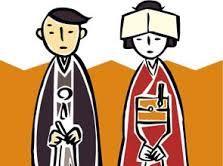
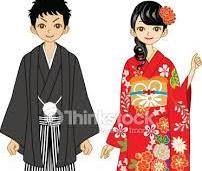
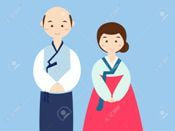
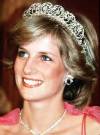
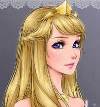

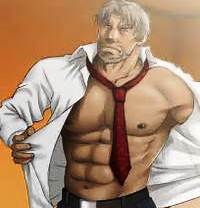


 RSS Feed
RSS Feed